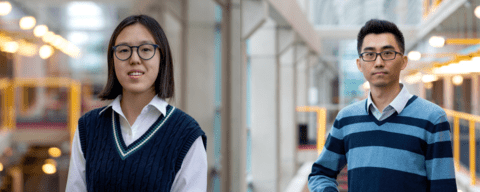Research on long-distance immigrant family communication wins award at GI 2025
Jiawen Stefanie Zhu (BCS ’24) has won the Best Poster award at Graphics Interface 2025, Canada’s top conference on computer graphics and visualization, and human-computer interaction.
Jiawen completed her undergraduate studies at the Cheriton School of Computer Science in 2024. Now, as a PhD student at the University of Washington, her research focuses on interactive systems that can enhance human–human and human–AI collaboration. In particular, she is “exploring ways to help people navigate our multilingual world.”









